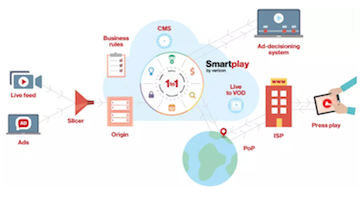
Publishings Digital Health
Program Areas
-
Blog
Political Scholars, NGOs Call on Facebook, Digital Industry to Support Rules for Political Campaigns
Released on September 22, 2017 at a political microtargeting conference held in Amsterdam, in response to the recent announcement by Facebook and Mark Zuckerberg on changes to how they conduct political ad campaigns. Dear Mark, Your statements on Facebook’s new policies for political advertising were issued as we started a global symposium on micro-targeting in Amsterdam (https://www.ivir.nl/amsterdam-symposium-on-political-micro-targeting/ (link is external)). We are a group of leading international academic experts and civil society representatives from the fields of law, communication, political science and economics who are conducting research on political targeting. Fairness, equality and democratic oversight are key in democratic societies. We appreciate the initiative you have taken and strongly encourage further dialogue and action. Moving this forward we strongly believe that the principles of transparency and disclosure are essential. Facebook should share publicly the full range of paid political contents, disclose the sponsoring actors, and identify the categories of target audiences. This should be done globally as this is an issue that affects elections worldwide. We encourage you and other platforms and actors to join this dialogue to contribute principles for transparency and disclosure. Transparency is a first step in the right direction. Digital political advertising operates in a dynamic tension between data and humans, commerce and politics, power and participation. Some of these tensions can be resolved by transparency, others not. The way forward is to engage with governments, regulators, election monitoring bodies, civil society and academics to develop public policies and guidelines for ensuring fairness, equality, and democratic oversight in digital political campaigns. Can we count on you? Natali Helberger Institute for Information Law (IViR), University of Amsterdam Claes de Vreese Amsterdam School of Communication Research (ASCoR), University of Amsterdam Balazs Bodo Institute for Information Law (IViR), University of Amsterdam Mauricio Moura George Washington University Max von Grafenstein Alexander von Humboldt Institute for Internet and Society, Berlin Jessica Schmeiss Alexander von Humboldt Institute for Internet and Society Sabrina Sassi Universite Laval Tom Dobber Amsterdam School of Communication Research (ASCoR), University of Amsterdam Jeff Chester Center for Digital Democracy, Washington, DC Kathryn Montgomery American University, Washington, DC André Haller Institut für Kommmunikationswissenschaft, Universität Bamberg Damian Tambini Department of Media and Communications, London School of Economics and Political Science Simon Krischinski Johannes Gutenberg Universität Mains Daniel Kreiss School of Media and Journalism, University of North Carolina at Chapel Hill -
Digital marketing companies, especially Facebook (link is external) and Google, allied with super-size broadband ISPs (AT&T, Comcast, etc.), defeated (link is external) a bill that would have given Californians the right to have a say in how their digital information can be used. The bill primarily required (link is external) opt-in consent (an informed, informative okay) before our data could be used to help advertisers target us via a home or mobile Internet connection. Google, Facebook, AT&T, Comcast and their partners don’t want individuals to be able to decide for themselves whether they want to be part of these companies’ commercial surveillance system. Working both independently and collectively, the digital marketing businesses can now seamlessly (link is external) gather, analyze and use all our information—whether we are on a mobile device a PC or even watching TV. Our mobile phones and apps send them details of where we go and what we do. All of our “profile” information is collected into a single record, which often contains an ever-growing (link is external) array of other data—about our finances, health, what our kids do, what we view online, where we shop and for what, our race, ethnicity, sexual orientation and more. Google and Facebook use this data to generate massive revenues from advertisers, marketers and political campaigns. AT&T, Comcast, and Verizon have long had “Google envy,” believing that their monopolistic control over the broadband connections most Americans rely on should also shower them with even more financial rewards. That’s why phone and cable companies have scooped (link is external) up digital ad companies, such as Yahoo and AOL. Their vision for the future is to profit significantly by selling us to advertisers when we use our digital devices to stream video, listen to music, play games, etc. The California bill was based on the safeguards that had been enacted by the FCC at the end of the Obama administration, but that President Trump eliminated (link is external) earlier this year and. Google, Facebook and the others knew that if California enacted such consumer safeguards, it would set a powerful precedent. That’s why they engaged in a deceptive (link is external) ad campaign, used their political donations (link is external) for clout with lawmakers, and sent lobbyists to the state to tell tall tales of how Americans have their privacy protected by the FTC. A terrific coalition (link is external) of privacy, consumer, education, children’s advocacy, civil rights and civil liberties group fought for the California bill. We are proud that CDD played a modest role. We will all be back, stronger than ever, when the California state legislature reconvenes next year. But the lesson here is a valuable one and joins the now-almost-daily examples where Google (link is external), Facebook (link is external) and the others misuse their power. The forces of advertising and marketing, now fueled with the ever-growing capabilities of digital applications, undermine the ability of America’s communication and information gatekeepers to effectively serve the public interest. It’s a story that has been repeated throughout the 20th century with the mediums of radio, broadcast television and cable. It’s also always been true of the Internet companies. Protecting our privacy, by stopping these companies from so easily grabbing and monetizing our data, is one way we need to address the problem. The Europeans are about to do precisely (link is external) that—and the U.S. needs to do the same. That’s a very important beginning for what must be a new national agenda protecting the digital rights of all Americans.
-
Integrated into their end-to-end platform (link is external), Smartplay provides a real-time, one-to-one connection (link is external) to viewer’s device, enabling them to optimize monetization opportunities. Smartplay’s server-side ad insertion technology (link is external) and industry-standard ad-decisioning system are used to deliver personalized ad experiences across live, linear and on-demand programming. By enforcing advertising business rules according to their monetization strategy, Smartplay enables smarter advertising to help customers get the most value out of their online content. --- For more information, please view the attached PDF and visit http://bit.ly/2w385c7 (link is external).
-
“Marketers. Ready, aim, engage! It is easier than ever to hit the right marketing targets,” explains Equifax (link is external) about its far-reaching data capabilities that capture, analyze, and sell our information. Equifax’s admission last week about its loss of personal information on 143 million Americans—including Social Security and drivers license numbers—is also a wake-up call about the dramatic loss of our privacy in the digital era. Most people think of Equifax as one of the “Big 3” credit-reporting agencies that provide information on our credit worthiness. But Equifax also profits from compiling and selling our data profile to financial services, retail, auto, telecommunications, and other industries for online targeting. As the company itself explains, “Equifax has grown from a consumer credit company into a leading global provider of insights.” It has built a major business offering (link is external) “audience profiling, targeting and measurement tools” that reflect data practices that undermine our privacy and can threaten the interests of consumers. As it explains (link is external) in its “Equifax for Marketing? Absolutely” document, “the advent of Big Data presents nearly limitless potential to help identify the most profitable customers and prospects…. Our data-driven marketing solutions help you synthesize consumer data for a holistic, 360-degree customer view.” Equifax pulls together and “enriches data from disparate sources” so others can have an “enhanced view” of who we are and what we do. Unfortunately, that “enhanced view” means trampling on what should be our right to control who has access and can use our information. We shouldn’t be focused only on the loss of our information from a data breach—but also on how we can better address this issue at its core—by stopping the massive and stealth ways our data are being gathered and used in the first place. Just last month (link is external), Equifax further consolidated (link is external) its “data assets” to create what it calls its “Data-Driven Marketing” suite (DDM). It now provides “a single point of access to all of its data” in order to make using it more convenient for marketers. Equifax’s current business practices reflect how our personal data is traded, shared, and sold today. An array of partners (link is external) collaborate to share information on an individual or a group to be targeted. Data from different sources are gathered, analyzed to identify patterns and opportunities; we are segmented and scored, given an invisible label that describes our financial status and behavior, and that information is then fed into superfast computers that deliver pitches and offers to us via mobile phones, PCs, and connected TVs. In its “Data-driven Marketing Solutions” paper (link is external) on financial services, Equifax touts its ability to directly measure “over $15 trillion of U.S. consumer investable assets…and credit data for over 220 million consumers in the U.S.” Equifax says that it can take that data to help clients target individuals “across channels: email, display, mobile, addressable TV, social, direct mail, point-of-sale, [and] call center.” This is what’s known as “omnichannel” marketing, and involves following us wherever we go online, and, via our mobile phone and apps, into stores and other physical locations as well. For example, Equifax’s IXI (link is external) Services division enables marketers to “differentiate consumer households and neighborhoods, based on wealth, income, spending capacity, share-of-wallet and share of market.” One of its products—AudienceIntel (link is external)—“helps you understand the financial profile of your site visitors…[using] intuitive targeting segments based on our proprietary measures of households’ financial capacity, propensities, preferences, and behavior.” Among IXI’s “digital targeting segments (link is external)” are those who may need a “sub-prime credit card,” a “revolver” (someone with a high balance and will have to accrue interest charges), a “likely student loan target,” and “active debit card users.” Equifax’s IXI promises that it can help guarantee that its clients’ ads have been viewed by their “desired target audience” and whether a sale or some other response was completed—“online or offline.” Unlike Experian and Acxiom, Equifax’s IXI “receives data directly from financial institutions,” which it can segment in a more granular way, according (link is external) to trade reports. Equifax’s “TokenIntel (link is external)” provides retailers with additional insights into our lives by linking point-of-sale and online transaction data with our use of credit cards. This includes geo-location information as well. Although Equifax claims its processes are privacy friendly, the technology it uses enables it to know each consumer and “household, allowing for a clearer picture of a household’s likely value to your brand.” “Communicate with shoppers like you know them…Because You Do!” Equifax explains, urging potential clients to work with it so that “your millions of transaction data points become the foundation” of more profiling and targeting of individuals. Equifax has allied itself with other leading digital data companies that use cutting-edge ad technologies that help target us in milliseconds. They are now working (link is external) with Adobe, Lotame, Salesforce’s Krux, Neustar, MediaMath, and Acxiom’s LiveRamp (link is external), for example (as well as working with music site Pandora (link is external)). In other words, Equifax is helping other data targeting companies gain access to our information—an example of the out-of-control data system unleashed today. Because the U.S. doesn’t have any federal consumer privacy law—rules that the digital data and ad industries are violently opposed to—there’s nothing stopping them from collecting and using even more of our information. The breaches that are occurring begin the very first time a company takes our data, without any legal limits on what that company can do with such information. ---
-
Equifax Inc., a global information solutions provider, today unveiled its next-generation Data-driven Marketing capabilities, designed to help brands conquer the challenges preventing them from realizing their data-driven marketing goals. As marketers across all industries become increasingly reliant on "big data" to help them identify the most profitable customers and prospects and create great experiences, it's clear that marketers need additional help to harness the promise of data-driven marketing. A majority -- 96% -- of marketers report their organizations are attempting to make more central use of customer data, but only 29% are seeing results, according to the IAB's "The Data-Centric Organization (link is external)" whitepaper from September, 2016. Data-driven marketing integrates and enhances the marketing services that Equifax provides. These include credit marketing, IXI Services' wealth-based marketing insights, and digital marketing. This unification enables Equifax to more holistically solve the key challenges that marketing executives face. Leveraging our track record as a trusted data steward and widely-recognized strengths in household economic data, identity and data linking, analytics and technology, Equifax helps brands: Create a single, actionable customer view across data silos and channels; Turn data into an understanding of customer needs and growth opportunities; Engage customers consistently across channels; and Measure results to continuously improve performance and marketing ROI --- For the full article, visit http://bit.ly/2wnuro8 (link is external)
-
Blog
Comcast, Cox, Charter Sell Your Data to Political Groups
NCC is owned by cable industry leaders Comcast, Cox and Spectrum, and represents virtually every other multi-channel programming distributor in the US.
What connects cable, online and on demand viewers? NCC Digital Video. NCC’s approach to advertising reaches premium voter audiences across all screens. Only NCC has the unrivaled ability to target authenticated subscribers in a variety of ways across premium cable content and websites. And with our targeting technology, NCC can continue to target this subscriber as well as additional specific audiences throughout the web. NCC A+ Political Advertising gathers first party voter data from all 50 states and offers list matching Premium in-stream video ads run across all screens to an engaged, authenticated audience Dynamic Ad Insertion (DAI) facilitates ad insertion into premium cable programming in OnDemand viewing Premium High Impact Home Page and Sign-In page take overs give maximum brand exposure and impact NCC Political Media is proud of our partnerships with the most reputable research and data sources on US voters. Access to this intelligence allows us to provide you with superior intelligence on how to effectively reach the right voters in your preferred markets, on the best cable networks and online platforms. --- For more information, visit NCCMedia.com -
Deep Root Analytics, a leading media & audience analytics company that creates data platforms for audience targeting and ad monitoring, announced today that it has expanded the number of audiences available with D2 Media Sales to enable political, corporate & advocacy advertisers to target Dish and DIRECTV households using proprietary audience segments. Deep Root Analytics has created 35 new proprietary audience segments based on their affinity scores on political & policy issues and interest in corporate responsibility efforts. These new audiences represent an increase in the Deep Root Analytics footprint to reach Dish & DIRECTV households above their initial announcement (link is external) in 2016 and brings its overall addressable audience offering to more than 60 unique audience segments. As such, Deep Root Analytics has pre-matched these segments to D2’s advertising platform, providing addressable TV advertising to nearly 23 million DIRECTV and DISH satellite households. “In 2017, advocacy and brand advertisers are navigating a tricky and fractured media landscape. They are especially keen to identify and efficiently reach audiences based on what they value and to drive their agenda and manage their brand reputations,” noted Deep Root Analytics CEO Brent McGoldrick. “At Deep Root Analytics, we are focused on helping them make their paid media as data-driven as possible. So, we are thrilled to work with D2 Media Sales and access their best-in-class addressable TV platform to enable our clients to directly communicate with nearly 23 million DIRECTV & DISH customers.” The 35 new proprietary segments created by Deep Root Analytics and made available for addressable advertising via D2 Media Sales include: --- For more information, visit http://bit.ly/2ep1l0U (link is external)
-
Political data firms on both sides of the aisle have bolstered their addressable TV capabilities. Today, Democratic data firm TargetSmart and Republican data outfit Data Trust each announced new partnerships with TV data providers. The outcome should be even more TV spots, especially from congressional campaigns, targeted to households of key voter segments than ever before. Data Trust, the data firm that manages a national voter file for Republicans and right-leaning groups, has partnered with FourthWall Media to match FourthWall's cable viewership data to Data Trust's voter data. The result will be a feed of TV viewer data updated daily and matched against Data Trust's voting history and demographic data. It was a year ago at the Democratic National Committee's summer meeting in Minneapolis when Democratic data firm TargetSmart Communications unveiled the addressable TV and digital ad targeting capabilities it developed with data services firm Experian. Today, TargetSmart expanded its TV data offerings through a partnership with Tru Optik, which provides media consumption data for digital media and connected TV devices such as Roku, Xbox, and smart TVs. The company also has TV data deals with Rentrak and D2 Media Sales, which is a partnership between DISH and DirecTV/AT&T. "We're trying to get as many partnerships out there as possible," said Bill Russell, director of digital partnerships at TargetSmart. These sorts of voter and TV data deals are bringing the targeting capabilities of online advertising to TV ad buys, which historically have resulted in some wasted spending for political campaigns that would do better to target ads to desired voter groups rather than those less likely to support their candidates. The new approaches have grown in popularity following the 2012 election, when President Obama's re-election campaign famously employed innovative data-crunching methods for buying TV ads aimed at voters through programming rarely purchased by political advertisers. By partnering with more and more TV data and media firms, political data companies are bringing what was once accessible only to large statewide or national campaigns to smaller, down-ballot candidates. Through such relationships, political advertisers can reach pre-defined voter segments, such as likely Democratic or Republican voters, or custom groups of voters. --- For the full article, visit http://bit.ly/2wDaz4s (link is external)
-
FameBit is an online marketplace that connects YouTubers with brands that are interested in advertising their products and services. This provides creators an opportunity to earn money with their content by partnering with brands that are relevant to their audience. Learn about Famebit, the Self-Service Influencer Marketing Platform. For more information, visit https://famebit.com/brands (link is external)
-
Chart: Here’s How 5 Tech Giants Make Their Billions Courtesy of: Visual Capitalist (link is external) For the full article visit, http://www.visualcapitalist.com/chart-5-tech-giants-make-billions/ (link is external)


